Latin American Research Centre
we expand horizons

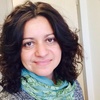 |
Learning and education in the context of sustainability and global change are the focus of her work. Specifically, her research focuses on understanding the factors and conditions that influence how teams produce integrated, action-oriented socioecological knowledge in a rapidly changing world. She currently teaches undergraduate and graduate courses in design thinking and project-based learning, interdisciplinary research, and formative assessment. Over the last 10 years, she have participated in several collaborative research projects with multiple aims, including: to build researchers’ and organizations’ capacity for collaboration; to engage stakeholders in co-designing and co-producing solutions-oriented knowledge; and to aid teams to develop networks of mutual learning. She has a BS in psychology and completed graduate studies in Curriculum and Implementation at Simon Fraser University in Vancouver. Currently, she is an assistant professor in the Werklund School of Education at the University of Calgary, Canada. |
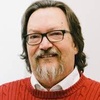 |
Geoffrey McCafferty (PhD SUNY Binghamton, 1993) is a Professor in the Department of Anthropology and Archaeology. His specialization is the archaeology of Mesoamerica and Central America, with ongoing research in Pacific Nicaragua. Other research projects include urbanism and complexity at the pre-Columbian religious center of Cholula (Mexico), and issues of social identity (especially gender) in ancient Mesoamerica. He is on the Executive Board of the Canadian Latin American Archaeology Society, and is past editor of the Cambridge University Press journal Ancient Mesoamerica. Since coming to the University of Calgary in 1999, Dr. McCafferty has directed a series of excavation projects along the shore of Lake Cocibolca in Nicaragua to investigate ethnohistorical accounts of migration and colonization by ethnic groups from central Mexico. Results challenge the entrenched cultural identity of 'mexicanized' Nicaragua in the final centuries before European contact. Instead, the material culture indicates a broad interaction sphere including parts of Honduras, El Salvador, and Costa Rica. In the process of conducting these investigations, more than 100 undergraduate students have been introduced to Nicaraguan archaeology, and numerous graduate students have produced MA and PhD theses. Another ongoing research project is done in collaboration with Sharisse McCafferty, focusing on pre-Columbian textile production and its relationship to engendered practice. This has been the topic of more than a dozen publications using data from both Mesoamerica and Central America. Gender research integrates archaeological evidence with ethnohistory and art history, especially imagery from Mixtec pictorial manuscripts. Cholula is widely regarded as the site of the largest pyramid in ancient Mesoamerica, with an occupation history of over 3000 years. Dr. McCafferty's long research interest has included questions of ethnic change and settlement sustainability, architectural history, household organization, native resistance to the Spanish colonial occupation, and the Cholula religious system. In addition to his scholarly research, he is also actively involved with community groups seeking to preserve the archaeological site from destructive development projects.
|
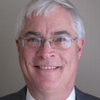 |
Mr. Purdy holds an Honors B.A from Dalhousie University and an M.A. in International Relations from the University of Toronto. He joined XPERA Corp. as their International Risk Advisor in 2009 after 33 years with the Canadian Security Intelligence Service (CSIS) and Royal Canadian Mounted Police Security Service. Having worked in the Service’s foreign liaison, counter-terrorism, and counter-intelligence departments, he has extensive experience in Latin America and the Caribbean, specifically Mexico, Guatemala, Colombia, Venezuela and Cuba. He holds a fellowship with the Latin America Research Center (LARC) at the University of Calgary and is a member of the Canadian Council for the Americas (CCA) and the Canadian International Council (CIC). He has presented to various academic, business and government audiences on a variety of current Latin America security issues. |
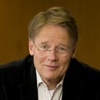 |
Dr. Harrie Vredenburg is a leading scholar of strategy, innovation, sustainability and governance in the global energy industry and holds the Suncor Chair in Strategy and Sustainability at the Haskayne School of Business at the University of Calgary. He was one of the visionaries who founded Haskayne’s Global Energy Executive MBA and served as its Academic Director for 8 years. He also holds an appointment as a Research Fellow at the School of Public Policy and as an International Research Fellow at the Said Business School at Oxford University in the UK. In addition, he has taught annually in Denmark and the UK for more than 10 years as a member of the International Teaching Faculty of the European Summer School for Advanced Management (ESSAM). He has authored or coauthored more than 50 articles in international journals. According to Google Scholar, his publications have been cited more than 5,000 times. A popular teacher, he lectures in MBA, Executive MBA, doctoral, executive development and corporate directors programs. He was honoured with the 2016-2017 Haskayne MBA Society Top MBA Teacher Award, based on a vote by MBA students. |
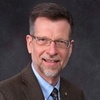 |
Hendrik Kraay is professor of history at the University of Calgary. He received his Ph.D. from the University of Texas at Austin (1995) and subsequently held a postdoctoral fellowship at the University of British Columbia. Since 1997, he has taught at the University of Calgary. He is the author of Race, State, and Armed Forces in Independence-Era Brazil: Bahia, 1790s-1840s (Stanford University Press, 2001) and Days of National Festivity in Rio de Janeiro, Brazil, 1823-1889 (Stanford University Press, 2013); the latter won the Conference on Latin American History’s 2014 Warren Dean Memorial Prize for the best book on Brazilian history. In addition to numerous articles and book chapters published in both English and Portuguese, Kraay has edited or coedited the following books: Afro-Brazilian Culture and Politics: Bahia, 1790s-1990s (M.E. Sharpe, 1998); Nova História Militar Brasileira (with Celso Castro and Vitor Izecksohn, Editora da Fundação Getúlio Vargas, 2004); I Die with My Country: Perspectives on the Paraguayan War, 1864-1870 (with Thomas L. Whigham, University of Nebraska Press, 2004); and Negotiating Identities in Modern Latin America (University of Calgary Press, 2007). In 2004, Kraay was visiting professor at the Universidade Federal do Rio de Janeiro. His research has been supported by the Social Sciences and Humanities Research Council’s Standard Research Grant and Insight Grant programs. In 2014-15, Kraay served as acting director of the Latin American Research Centre. His current research projects are focused on the Dois de Julho festival in Bahia and the change in pre-Lenten celebrations from entrudo to carnaval. Fellow interview with Dr. Kraay.
|
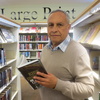 |
Professor Gordillo has a PhD and a MA in the field of Latin American History granted by the State University of New York at Stony Brook (USA), and a BA in Economics from the Universidad Autónoma de Madrid (Spain) and the Universidad Mayor de San Simon (Bolivia). Since 2009, he has been teaching Latin American History and Culture courses at Mount Royal University, Saint Mary’s University and the University of Calgary. |
 |
Dr. Kathryn Reese-Taylor is an Associate Professor in the Department of Anthropology and Archaeology at the University of Calgary. She has directed several projects in the Maya region at important sites, such as Naachtun in Peten, Guatemala, and is currently the director of the Yaxnohcah Archaeological Project in the southern Campeche, Mexico. The project focuses on landscape archaeology, political economy and ideology of the lowland Maya during the Preclassic periods (900 BCE to AD 150). Dr. Reese-Taylor has written numerous articles, chapters and edited one volume, Landscape and Power in Ancient Mesoamerica, which highlights her research into this early period. In addition, she has published articles and chapters, as well as presented lectures, on the role of women in Prehispanic Maya society and is currently completing her book, Maya Noblewomen, to be published by the University of Texas Press. Fellow interview with Dr. Reese-Taylor. |
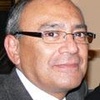 |
School of Languages, Linguistics, Literatures & Cultures |
 |
May du Monceau is originally from Chile with a background in Anthropology. She has more than 20 years of experience working in conflict sensitive environments. Her work focuses on the cultural and political aspects of natural resources management, particularly in indigenous territories. She uses an interdisciplinary approach to analyze property relations and conflicts over resources use. Her specialization is in political ecology, environmental justice and indigenous movements in Latin America. May holds a Master in Environment, Development and Policy from Sussex University (UK) and a PhD in Resource Management and Environmental Studies from UBC. Her postdoctoral work focused on indigenous resistance and emerging approaches used by resource development projects (mainly extractive industries) to assess and mitigate the impact of their activities on indigenous territories. She plans to continue exploring the complex ways in which indigeneity is contested and represented in current debates over the extractive industry activity in South America. |
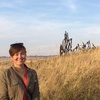 |
Meaghan is an anthropological archaeologist who maintains an active, cross-cultural, theory-based research program, incorporating significant collaborative and cross-disciplinary pursuits. Her interests to date have focused on the built environment and exchange-consumption studies of material culture: investigating how individuals, households, and communities negotiate their integration in locally and regionally defined socio-political and economic institutions, and the impact of such negotiation on overall processes of urbanization. While her past research has focused heavily on the archaeology of households and communities, her more recent work considers larger issues related to landscape and urbanism among the ancient Maya. Her current fieldwork is focused on rapid resource-based urbanism (rapid growth communities) at Alabama, Belize, and on multiple nuclei urbanism at Yaxnohcah, Mexico. Fellow interview with Dr. Peuramäki-Brown. |